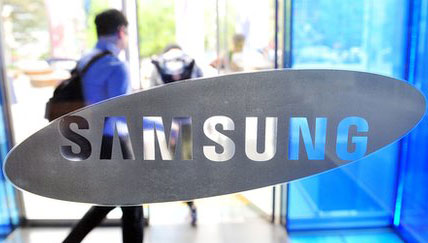May, 15, 2014

Samsung says it will compensate chip factory workers who developed cancer while working for the firm.
The company issued its first apology in a long-running dispute and withdrew from a legal bid to avoid paying out.
It brings the conflict one step closer to resolution only a month after talks appeared to have stalled.
But Samsung's chief executive Kwon Oh-hyun stopped short of admitting a direct link between working at the firm and developing leukaemia.
Mr Kwon said: "Several workers at our production facilities suffered from leukaemia and other incurable diseases, which also led to some deaths.
"We should have settled the issue earlier, and we are deeply heartbroken that we failed to do so and express our deep apology."
At a press conference, he said Samsung hoped to "resolve the issue with sincerity and earnestness". In a statement, he added: "We will make due compensation to the victims and the families."
'Another Promise'
Mr Kwon said that Samsung had failed to pay "careful attention to the pain and difficulty" of the victims and their families.
An independent adjudicator would be set up in order to decide how to deal with each case with fairness and objectivity, with consent from the victims and the families, and Samsung would follow the compensation guidelines determined by it, Kwon said.
The world's top chip and smartphone maker did not say how many people might be compensated. But, according to Agence France-Presse, about 40 employees have filed claims with the state Korean Workers' Compensation and Welfare Service in the past six years.
Previously Samsung has pointed to independent studies that found no link between its workplace environment and employee illnesses, and there was no admission of a direct link in its statement on Wednesday.
The cases of two of the workers who developed leukaemia were made into films recently, and the families of those affected have been fighting Samsung in the courts.
One of the films, called Another Promise, tells the story of Hwang Sang-ki and his daughter Yu-mi, who died after working for Samsung for four years. The film was crowd-funded and the Korea Herald called its production a "meaningful achievement in Korean cinema".
Yu-mi's father insisted her death was a result of her being exposed to dangerous chemicals while working for Samsung at the chip factory in Giheung, just south of Seoul.
The case of Hwang Yu-mi, who died in 2007, brought to light what has become a major controversy for Samsung. The family has been fighting a legal battle against the company since her death.
For legal reasons, Samsung was not named in the film but the title alluded to one of its well-known slogans: "Another Family".
In 2011, the families who joined the battle were given a boost when a Seoul court said toxic chemicals "had caused, or at least expedited" Yu-mi and one other worker's condition.
On April 16, Yonhap reported that Samsung was refusing to take the blame in talks with workers over diseases allegedly linked to working conditions at the firm's semiconductor plants. There was reportedly confusion over whether a third party should be brought in to mediate.
Earlier that month, South Korean politician Sim Sang-jung, along the victims and their families, demanded that Samsung take responsibility and pay compensation. On Wednesday, Mr Kwon invited Ms Sim to participate in the talks over the issue.
Ms Sim has called on Samsung and the South Korean government to apologise over 243 cases in which semiconductor factory workers have developed or died from rare cancers. A resolution she proposed in April said that 114 of the cases involved former Samsung employees.
Samsung said it would set up an independent panel of experts to hold health and safety inspections of its chip plants and help prevent a recurrence of the illnesses.
The company also said it would no longer assist a government compensation agency in its legal battle over its refusal to pay compensation to workers.
According to Yonhap, Samsung also refused to comment on another dispute which involves the company asking an activist group whose members include the victims' families, to obtain a power of attorney from all related victims.
The Protector of Health and Human Rights of Semiconductor Workers (Sharp) wanted to take the step in order to make itself a legitimate negotiation party.
BBC
Video Story